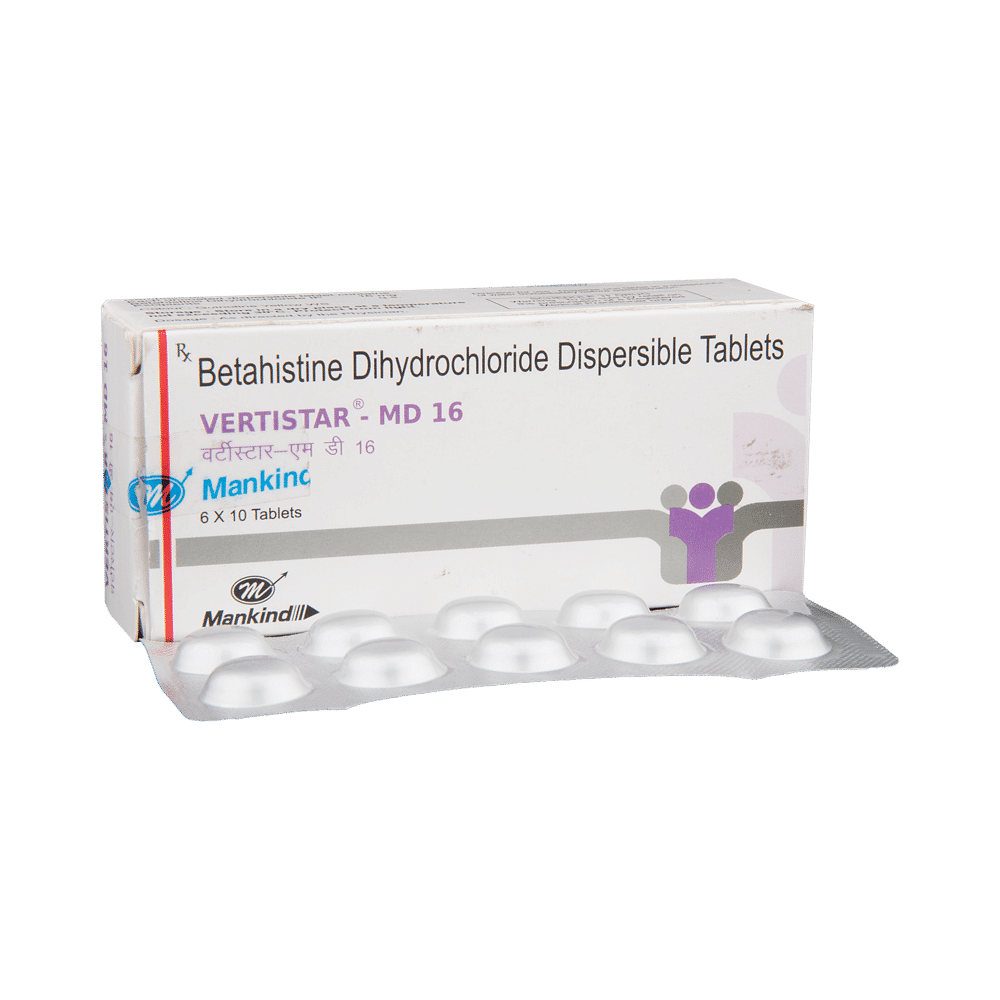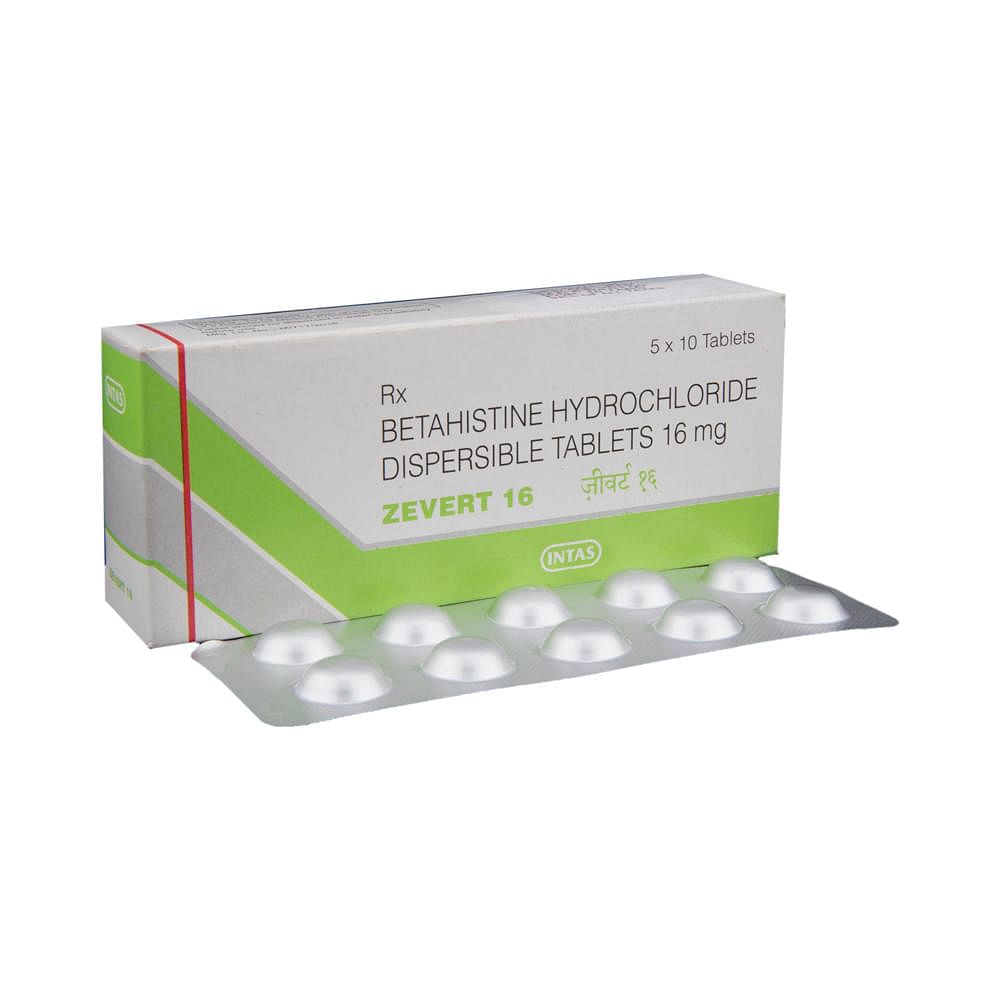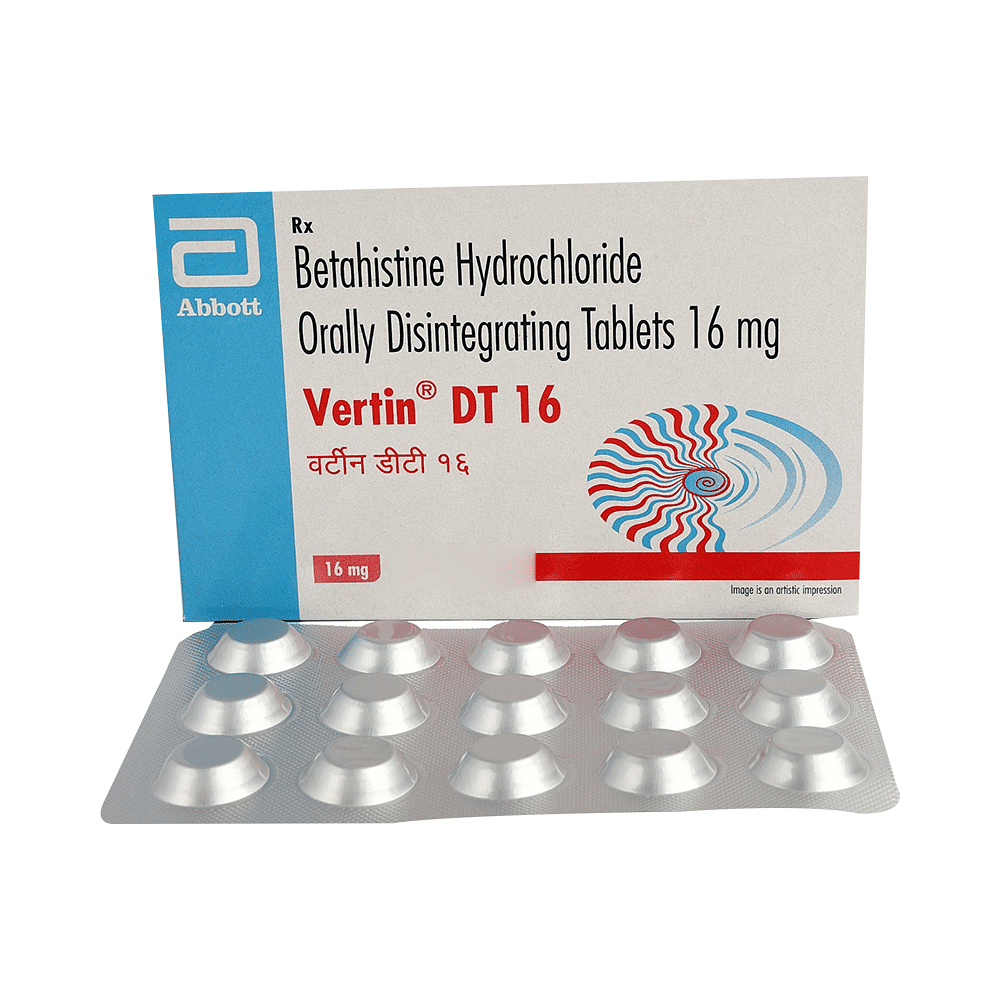
Verlix 16mg Tablet DT
Manufacturer
Human Biolife India Pvt Ltd
Salt Composition
Betahistine (16mg)
Key Information
Short Description
Verlix 16mg Tablet DT is used to prevent and treat Ménière's disease, a disorder of the inner ear, by reducing the amount of fluid and relieving symptoms such as dizziness, ringing in the ears, and loss of hearing.
Dosage Form
Tablet DT
Introduction
Verlix 16mg Tablet DT should be swallowed whole with water and taken at the same time(s) each day to get the most benefit. Your doctor will decide what is the correct dose to relieve your symptoms and how often you need to take it. You may need to take this medicine for several months and you should take it for as long as prescribed by your doctor, even if you start feeling better. The most common side effects include headache, feeling sick, and indigestion (dyspepsia). You may also get stomach pain and bloating. Taking the medicine with food can help reduce stomach problems.
Directions for Use
Take this medicine in the dose and duration as advised by your doctor. Dissolve it in a glass of water before taking it. Verlix 16mg Tablet DT may be taken with or without food, but it is better to take it at a fixed time.
Safety Information
Side Effects
Headache Feeling sick Indigestion (dyspepsia) Stomach pain Bloating
Alcohol Warning
Consuming alcohol with Verlix 16mg Tablet DT does not cause any harmful side effects.
Breastfeeding Warning
Verlix 16mg Tablet DT is probably unsafe to use during breastfeeding. Limited human data suggests that the drug may pass into the breastmilk and harm the baby.
Pregnancy Warning
Verlix 16mg Tablet DT may be unsafe to use during pregnancy. Although there are limited studies in humans, animal studies have shown harmful effects on the developing baby. Your doctor will weigh the benefits and any potential risks before prescribing it to you. Please consult your doctor.
Interacting Medicines
Astemizole Azelastine Buclizine Cetirizine
How it works
Verlix 16mg Tablet DT is a histamine analog. It works by improving the blood flow in the inner ear which reduces the pressure of excess fluid there. Excess fluid can send signals to the brain causing nausea, dizziness or spinning sensations (symptoms of Ménière's disease). Verlix 16mg Tablet DT additionally dampens down the nerve signals sent from the inner ear to the brain relieving the symptoms of Ménière's disease.
Quick Tips
Take it at the same time each day to maintain a steady amount of the medicine in your body Inform your doctor if you have a history of stomach ulcer, asthma, or low blood pressure Inform your doctor if you are pregnant, planning pregnancy or breastfeeding Do not stop taking the medicine suddenly without talking to your doctor first
Related Medicines

Vertistar -MD 16 Tablet

Zevert 16 Tablet DT

B-Histine 16 Tablet DT

Vertin DT 16 Tablet

Verpicare 16mg Tablet DT

Bitastine 16 Tablet DT

Betazom 16mg Tablet DT

Okdefast 16mg Tablet DT

R Vert 16mg Tablet DT

Betocop 16 Tablet DT
Frequently asked questions
What is Meniere's disease? Does it go away?
Meniere's disease is a disorder of the balance and hearing organs in the inner ear that causes vertigo, fluctuating hearing, tinnitus (ringing in the ears), and pressure in the ears. While there is no cure for Meniere's disease, treatment can help to manage symptoms and improve quality of life. It's crucial to discuss with your doctor regarding the best course of action based on individual needs.
Is Verlix 16mg Tablet DT effective?
Verlix 16mg Tablet DT can be effective when used as prescribed by your doctor. Please do not stop taking it even if you see improvement in your condition, as stopping too early could lead to the return or worsening of symptoms. It's vital to adhere to your doctor’s recommended dosage and schedule for optimal results.
What are the triggers for Meniere's disease?
Triggers for Meniere's disease can include stress, overwork, fatigue, emotional distress, other illnesses, and changes in air pressure. Certain foods like dairy products, caffeine, alcohol, and high-sodium meals may also trigger symptoms. A low-salt diet (2 grams/day) might help manage vertigo associated with Meniere's disease.
What if I forget to take a dose of Verlix 16mg Tablet DT?
If you miss a dose of Verlix 16mg Tablet DT, it's best to take the missed dose as soon as you remember. If it's almost time for your next dose, skip that missed dose and take your medication at the scheduled time. Avoid doubling the dose to compensate for missing one; doing so could potentially lead to side effects.
Is stress a reason for vertigo?
Yes, mental stress can trigger or worsen vertigo. It's important to manage stress levels effectively and seek professional guidance if experiencing excessive stress.
What are the causes of vertigo?
Vertigo can be triggered by sudden changes in blood pressure, dehydration, rapid transitions between sitting or lying down positions. Other potential causes include motion sickness, certain medications, and issues with your inner ear (Meniere's disease, acoustic neuroma). Remember that in some cases, vertigo could be a symptom of other underlying disorders like multiple sclerosis or head trauma.
How long should Verlix 16mg Tablet DT be taken?
The duration of treatment with Verlix 16mg Tablet DT may vary between individuals. Some people experience rapid improvement, while others require a longer course of treatment. It is crucial to follow your doctor's instructions and maintain regular medication usage for optimal results.
What are the common side effects of Verlix 16mg Tablet DT?
Possible side effects of Verlix 16mg Tablet DT include mild stomach problems like vomiting, stomach pain, abdominal swelling (distension), and bloating. You can reduce these chances by taking your medication with food.
Is Verlix 16mg Tablet DT effective?
Verlix 16mg Tablet DT is effective when used as prescribed, at the dosage and duration recommended by your doctor. Please do not stop taking it even if you see improvement in your condition, as stopping too early may worsen symptoms.
What if I forget to take a dose of Verlix 16mg Tablet DT?
If you miss a dose of Verlix 16mg Tablet DT, it's best to take the missed dose as soon as possible. If it's almost time for your next dose, skip the missed dose and take the next one at the scheduled time. Don't double the dose; this could increase the risk of side effects.
How long should Verlix 16mg Tablet DT be taken?
The duration of treatment with Verlix 16mg Tablet DT will vary depending on your individual needs and response. It's crucial to follow your doctor’s instructions, remain consistent with medication usage, and monitor your progress.


